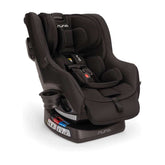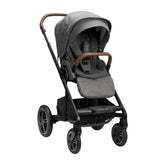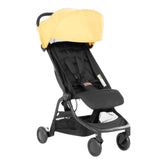Why Spoiling a Baby is Impossible, According to Science

Updated: 18 Dec 2024
“You’re holding that baby too much. You’re going to spoil them!”
Most new parents hear this criticism at some point or another from a well-meaning friend or relative. Sometimes you even hear it from strangers.
But the truth is that you may be helping your baby’s development by holding them often in those early weeks of life.
Here’s what science has to say about spoiling your baby and why it's impossible to do it.
Can You Spoil a Baby by Holding Them Too Much? Research Says No
Touch creates secure attachment. It’s what helps babies feel physically and emotionally safe with the adults who care for them. And the foundation for that attachment is established beginning at birth through regular positive interactions with them.
The importance of touch is undeniable. Touch helps a baby’s brain grow exponentially during the first year of life. It promotes bonding with their caregiver. Even as babies grow into toddlers and older children they continue to benefit from the power of touch.
The bottom line is that holding your baby and responding to their cry helps them feel secure. A responsive caregiver fosters healthy growth.

Responding to Your Baby’s Needs Isn’t Spoiling
Newborns only have needs – not wants. They’re not capable of manipulating you (another myth you may have been exposed to as a new parent). They need to eat, sleep, have their diaper changed, and be loved.
Crying is a newborn’s only means of communicating those needs. In fact, they have different types of cries to communicate different needs. Responsive caregivers are often able to distinguish between the subtle (and less subtle) variations in a cry of hunger versus a cry of pain. Responding to your baby quickly and meeting those needs allows you to better tailor your response and instill a sense of trust.
Being close to your baby helps them respond to all the new stimuli in their little world. It helps them feel safe when they cry. For example, research shows that babywearing (placing baby in a soft, safe carrier attached to their caregiver) is directly linked to the ability to form a secure attachment. The reason? It’s easier to respond quickly to a baby you’re wearing who’s in another room.

Can You Spoil a Baby with Gifts?
Newborn babies aren’t interested in gifts. The whole planet is new to them! They won’t be any more fascinated by an expensive, high-end toy than they would be with a rock.
If you feel your baby has too many material things, it’s perfectly acceptable to cut back, particularly regarding electronics. They’ll have plenty of time to catch up on the latest in technology, but while they're small, research shows parents are far better teachers than screens. Along with good quality time, board books and safe wooden or cloth toys devoid of choking hazards are great options for new babies.
But spoiling a newborn with toys? It’s really not possible when they’re that little.
Can You Spoil a Baby by Soothing Them At Night?
Newborns wake frequently and unpredictably. That’s both normal and healthy. Babies aren’t able to sleep through their hunger or discomfort. Consistently responding to a baby when they’re wet or hungry or lonely doesn’t foster clinginess. Rather, research shows that regular compassionate responsiveness strengthens caregiver bonds and a secure attachment.
Caregiver responsiveness is beneficial when it comes to newborns. In fact, separation (from mom, especially) can create distress in babies. The American Academy of Pediatrics advises caregivers to share a room for a full year.
Can You Spoil a Baby with On-Demand Feeding?
Babies don’t watch the clock. Holding out for the “right time” can be a self-defeating strategy for parents, who may then struggle to soothe the baby enough to feed them at all. The U.S. Department of Agriculture advises that new parents become familiar with their child’s hunger cues and feed them right away.
On-demand feeding is healthy for newborns. That said, it’s important to consider the caregivers’ mental health and what works best for the family. Feeding your baby on a set schedule is undoubtedly more convenient for parents, but there is some evidence to suggest this method later correlates with children scoring lower on IQ tests and standardized tests than those fed on demand.
At some point, the “need” for on-demand feeding will eventually end but it differs for each child. Consult your pediatrician and trust your parental instincts about what your baby needs.
When Can You Start Spoiling a Baby?
Around 6 to 7 months of age, you may find it necessary to begin making a few adjustments. Your baby still needs a responsive, loving caregiver. However, at that point in their development, it may be more beneficial to help them begin understanding limits.
Children learn autonomy with time and with a dependable, responsive caregiver. It allows the child to feel secure in the relationship. That security fosters confidence instead of fear that their needs won’t be met. If children don’t have to worry about a caregiver being there for them, it reinforces their trust and their desire to take risks. It also naturally develops their sense of independence.
The Bottom Line on Spoiling a Baby
Try not to sweat it too much if your cousin or a well-meaning neighbor fusses at you for snuggling your newborn too much. Babies need your love – and your touch – often, especially during the first six months of their lives. And as their caregiver, it’s your responsibility to provide those things for them. Sure, some babies may need more holding than others. Over time, you’ll learn what works best for your baby.









